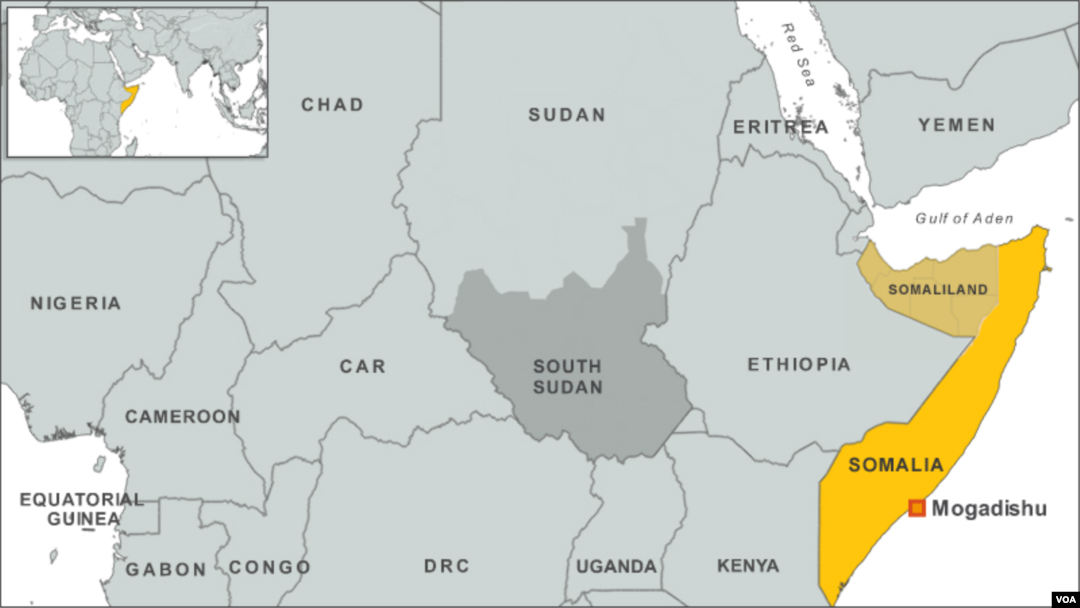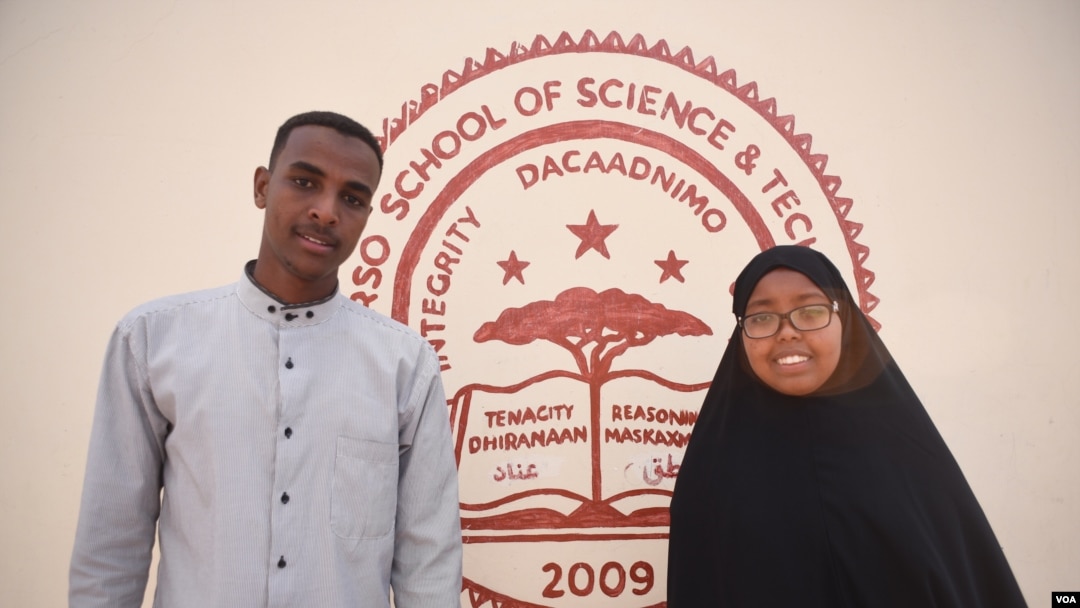Shukri Ahmed Ali was ecstatic when she received a letter of acceptance in December to the elite Wellesley College in the American state of Massachusetts.
But Ali, 19, from Somaliland in the northwest of Somalia, worries she will not be able to attend Wellesley later this year because of U.S. President Donald Trump's temporary visa ban, which was announced last week against Somalis and citizens of six other Muslim-majority countries.
"If Donald Trump extends the 90-day ban, I may not be able to get into the U.S. because Somalia is part of the seven countries that he banned," Ali told VOA.
Ali is a student at the Abaarso School of Science and Technology, a secondary school on the outskirts of the Somaliland capital, Hargeisa, which has gained a reputation for sending its students to elite universities in America. The school regularly feeds Somali students to top American schools like Harvard and Yale universities.
Yet the visa ban has thrown the educational futures of Ali and dozens of her Abaarso classmates into uncertainty.
The ban has sparked confusion about who is allowed into America and who is not. The White House has said it may extend the ban or blacklist additional countries. On Friday, a federal judge issued a temporary hold on the ban, which the U.S. president has vowed to overturn.
'Safeguard' Americans
The Trump administration says the ban is meant to protect Americans from foreign terrorists, but critics say it targets Muslims, an allegation Homeland Security Secretary John Kelly denied at a news conference this week. Kelly added that his agency’s mission “is to safeguard the American people, our homeland, our values."
More than 17,000 university and graduate students from the seven banned countries attended school in the United States last school year, according to the Institute of International Education.

Somaliland
Abaarso headmaster James Linville said he has eight students, including Ali, accepted to attend American colleges and universities, including Marist College and Columbia University, which are both in New York. About 45 Abaarso students currently study in American preparatory schools and universities, Linville said.
"We are advising them very strongly not to leave the country, not to come home during the summers, and that can be tough," Linville said. "Some of them are graduating from high school in the U.S. this year, and they've been accepted to continue at U.S. colleges, and so we still haven't quite figured out if they'll be able to transfer their visa."
Linville also worries about a dozen Abaarso students who have applied to attend college in the U.S. but still are waiting to hear back.
"We're not sure if maybe those applications will be affected, since the 90-day period will end after they hear back from their schools," he said. "I think from the perspective of some of the universities where they've applied to, maybe it seems like more of a risk to accept them knowing that it's possible they won't be able to come."
Abaarso has received more than $1 million from the U.S. government, he said.
Next generation of leaders
Linville said that when Abaarso's students return home after graduating from American schools, they will be among the most educated people in Somaliland, which declared independence from the rest of Somalia 25 years ago but is not internationally recognized.
"They'll be in a great position to help develop Somaliland and help be part of the next generation of Somali leaders," he said. "To have those people in the future leading countries that are important to the U.S. strategically, and in terms of security, I think that's a very good situation for everyone."
Ali is one Abaarso student who already has experience in America. She applied to Wellesley after studying as an exchange student in a Massachusetts high school.
"I visited [Wellesley] when I was in the U.S. last year, and I liked their neuroscience department and the campus was really beautiful," she said. "So my plans are to attend Wellesley College, study neuroscience, and then when I finish my education come back to Somaliland and start a hospital."
Ali said that despite the ban in the U.S., she still wants to go to America to study.
"I feel like the majority of the Americans are supporting us," she said. "We as Abaarso students are coming to the U.S. to get an education, and we are not terrorists ... and the only reason we want to come there is to get an education that we can use to help our country and our community."
As Trump's order goes to the courts, students like Ali hope to continue their studies in America as planned.


